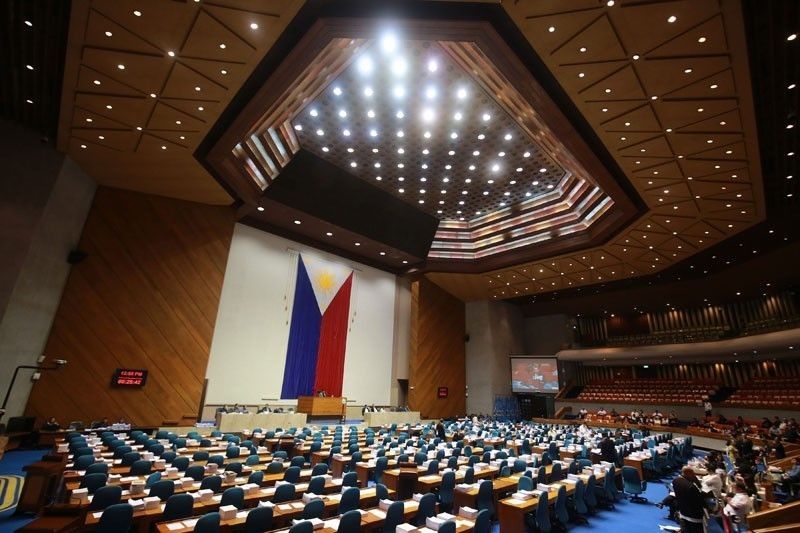House OKs draft federalism charter on second reading

MANILA, Philippines (Updated 6:13 p.m.) — The House of Representatives on Tuesday approved on second reading a proposal to shift to a federal government.
The proposal, Resolution of Both Houses 15, was approved through voice voting, where lawmakers vote with "ayes" or "nays." Unlike in nominal voting, where lawmakers are called and asked to vote on a proposed measure, there are no records on how each member of the House voted.
JUST IN: House approves on second reading a draft bill authored by Speaker Gloria Macapagal-Arroyo revising the 1987 Constitution’s current form of government into a presidential-bicameral-federal system. | via Delon Porcalla pic.twitter.com/SSIkVPCiJd
— The Philippine Star (@PhilippineStar) December 4, 2018
The House resumed floor debates on the draft charter for a Federal Republic of the Philippines in late November.
RBH 15 argues that "many provisions of the 1987 Constitution have already served, if not outlived, their purpose, hence the sustained clamor over the years for amendments to or revision of the consitution finds justification in the need to provide, among other much needed soco-economic and political refroms, a long-term solution to the decades-old conflict in Mindanao and regional economic development in the countryside."
Resolution of Both Houses 15
Under Resolution of Both Houses 15, the Federal Republic of the Philippines will have a presidential-bicameral-federal system.
The president and vice president will be elected in tandem but will have the same powers and functions as in the current constitution.
Congress will have two chambers: A House of Representatives with no more than 300 members, and a 24-member Senate.
A total of 80 percent of the House members will be composed of lawmakers from legislative districts across the country from Luzon, Visayas and Mindanao, while the remaining 20 percent will comprise what is called the party-list lawmakers.
Members of the Supreme Court and judges of the lower courts will be appointed by the president from a list of at least three nominees prepared by a Judicial Appointments and Disciplinary Council, which will replace the Judicial and Bar Council.
Members of the SC will serve for a term of 10 years or until they reach the mandatory age of 70.
Political divisions
The draft federal charter also states that territorial and political subdivisions of the country will have political autonomy.
Federal states may be created upon petition of any contiguous, compact and adjacent provinces, highly urbanized and component cities, and cities and municipalities in metropolitan areas.
Local governments and federal states will have the power to create their own sources of revenue and impose taxes, fees and charges.
The national government will provide local governments with their just share in national taxes as determined by law.
All branches of the government will continue to function in a transitory capacity until all successors are elected.
The approval on second reading—legislation must be approved on three readings—comes after the Palace said over the weekend that it is confident that Congress will pass legislation for the shift to federalism.
"It's the call of Congress. If they believe in the president, they will perform their duty and continue what they started," presidential spokesperson Salvador Panelo said on Sunday.
Senate President Vicente Sotto III had previously said the Senate is focused on passing the proposed General Appropriations Bill for 2019.
The House, from where legislation of the national budget bill begins, passed its version of the bill in November. — from reports by The STAR/Delon Porcalla
- Latest
- Trending






























